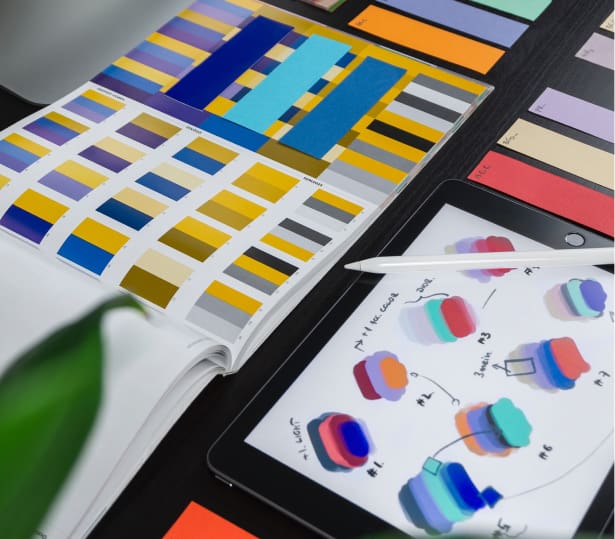SEO vs PPC — Where Should You Focus Your Budget?

It’s a common question in the content marketing world — should I spend my money and time on building SEO? Or should I focus those resources on targeted pay-per-click (PPC) ads instead? Which one will drive more traffic? Which one will help your brand more, in both the short and long term?
As usual, the answer is “it depends.” The short answer is that you should be spending time and money on both SEO and PPC. The long answer is that it depends what you’re trying to accomplish, the timeline of your goals, the scale of your business, the state of your competition, and a lot of other factors.
In general, you can think of SEO as the foundation of your web presence, held up by a well-constructed website, well-written content, and visually pleasing digital assets across the web. PPC, on the other hand, is a short-term boost, great for new products, new campaigns, or to get your foot in the door. But there’s more to it than that.
Here’s what you need to know.
Boost Organic Traffic With SEO
The most obvious pro of an SEO-first approach is that it puts your website in front of potential customers when they use search terms related to your business. Practically no one buys anything these days without doing some online research first, and you want to be there when they do that research.
Image and Reputation
Improved SEO can also enhance your brand image. The more often your website comes up in the top few results on a search engine, the more you’ll become associated with your industry. You’ll start to build a reputation as an authority and a thought leader in the space, guiding searchers through the funnel toward a purchase.
Credibility and Trust
Another consideration is the matter of trust. “Banner blindness” is the phenomenon wherein web users are so inundated by ads on a regular basis that they don’t even notice them anymore — the same applies to the paid results at the top of Google. Sure, they’re front and center, but a lot of people will instinctively scroll past them to get to the organic results because they trust them more. SEO optimization will sidestep that issue.
Increased Traffic
Organic search traffic drives more traffic to your website than search — a lot more. A 2014 study by Conductor showed that while organic search was responsible for 64 percent of website traffic, paid search account for only six percent.
While it’s worth considering that the traffic generated by paid clicks is more targeted and therefore more likely to turn into sales-qualified leads, there’s no denying the enormous imbalance in quantity between PPC and SEO.
You should also remember that PPC ads aren’t advertising a product — they’re advertising a website. If web users click on the ad and are directed to a website that’s unintuitive, uninformative, or has broken links and 404 pages, you’re wasting that ad money.
Longevity
Even if your PPC campaign is a huge success — driving lots of sales-qualified leads to your site, boosting revenue, increasing sales of a new product, and so on — all of that will vanish the moment you stop the campaign.
SEO-optimized content is slow to get started, especially in emerging markets. When businesses like Uber or HelloFresh were launched, no one was searching for “ride-sharing app” or “meal kit delivery,” so the best content in the world wouldn’t have helped. But once you get some momentum, SEO-optimized content can be timeless, sustaining consistent web traffic for years after you publish it, at no extra expense to you.
Downsides of SEO
Like we mentioned above, SEO takes time to get going. If you’re trying to get the word out about time-sensitive promotions, events, or new products, SEO optimization probably won’t attract enough attention in the short term to be worth the effort.
SEO also takes a lot more effort. Content needs to be planned, written, formatted, and published. Landing pages need to be maintained. Branding needs to be consistent. Images need to be chosen. All of this requires time, money and staff. The ROI may be better than from PPC, but it’s still a substantial investment upfront that some companies aren’t equipped to make.
Enhance Focus and Visibility with PPC
So if web traffic, reputation, and ROI are leaning in favor of SEO, why would your company spend any time on PPC?
Visibility
Paid ads will put you on the top of the page, dominating the view above the fold when someone conducts a web search. While it’s true that some people scroll past the ads by default, paid search still gives you the best chance at visibility if your SEO efforts haven’t put your search results high enough on the page.
You also have the opportunity for more customization with a paid post. PPC ads may look like search results, but they’re still ads. As a result, you can put in calls, locations, links, pricing, bullet points, and more to make your ad as informative as possible.
If you’re selling a product, you can even add images with Google’s PLA (product listing ad) option, helping your listing stand out even more from organic search.
Targeting and Budget
PPC ads can be targeted by search keywords, time of day, day of the week, location, language, device, audience, and a bunch of other granular criteria, so you know that your ad is getting seen by exactly who you want to see them.
And since you’re paying per click (hence the name), you can target exactly how many of these people you want seeing your ads as well. You can set strict limits on how much you want to spend or how many clicks you’re willing to pay for, and you know you’ll never exceed that budget.
Speed and Agility
While SEO takes time to build and optimize, PPC campaigns can be conceived and launched in days and ramped up to scale in weeks. If you have something that you need your customers to see now, there’s no faster technique than PPC.
That speed gives you agility. Whether you’re launching a new product, changing campaigns or branding, or looking for feedback on a minimum viable product like a new website, you can start generating useful data and analytics in mere weeks with a PPC campaign.
You can also run A/B testing and specific keyword testing with PPC ads, gleaning much more specific and actionable marketing intel from the ads that you can then use in your other branding, social, and SEO materials.
A Match Made in Heaven
In a perfect world, you’d be using both SEO and PPC, supporting each other and compensating for each other’s weaknesses. Here’s how that might work:
- PPC campaigns can give you extremely specific keyword and conversion data, which you can then use to further optimize your content for SEO.
- Keywords that are important, but too high-cost to be worth continuing in a PPC campaign, can be optimized for organic search instead.
- PPC can be used to test strategies in the short term before putting in the effort to create content for SEO.
- PPC can get a new campaign or new brand up and running quickly, while the momentum from SEO-optimized content builds more slowly in the background.
So what’s the answer to the SEO vs. PPC debate? Why not both? If SEO and PPC work together, they can create a campaign that’s more than the sum of its parts — grabbing attention upfront, then backing it up with a high-quality website and relevant, informative content. If you want your brand to stand out in a cluttered digital world, you’ll need to take advantage of every resource you have.





